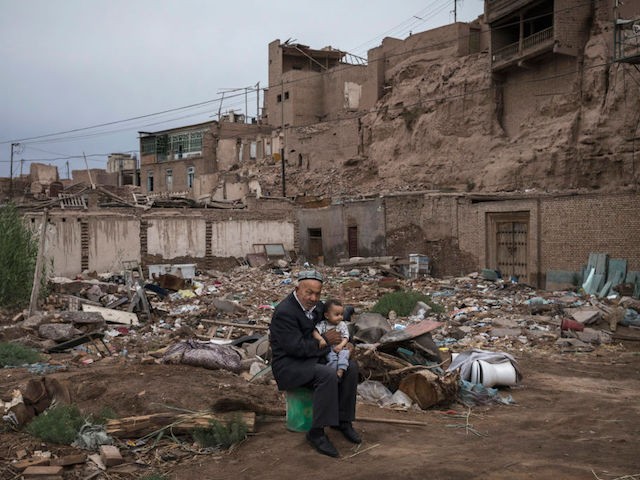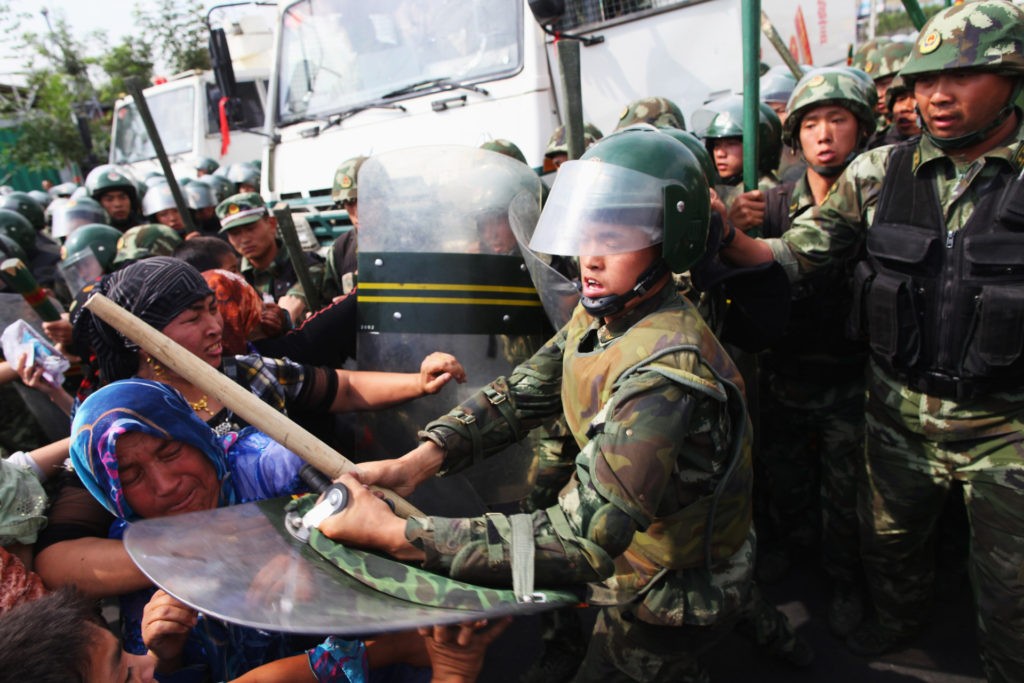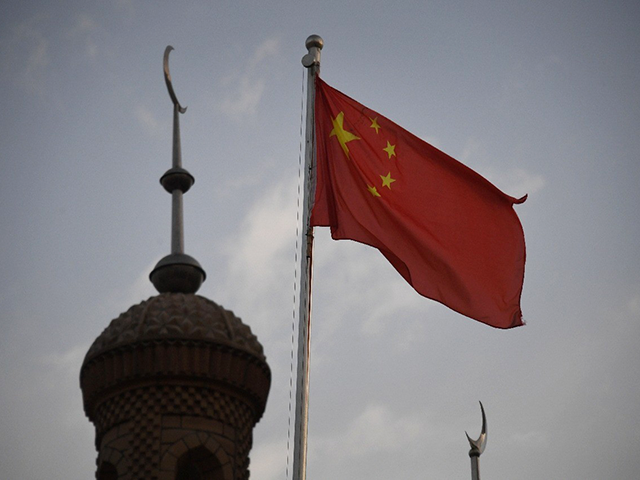An audio transcript of a May 2017 meeting chaired by China’s top Communist Party official in the country’s western Xinjiang territory published on Tuesday reveals the regional chief urged Xinjiang officials to “exercise firm control over the religious community,” referring to the largely Sunni Muslim, Turkic-speaking Uyghur ethnic minority in Xinjiang.
Chen Quanguo, who served as Communist Party Secretary of China’s Xinjiang Uyghur Autonomous Region from 2016 to 2021, told attendees of a regional maintenance meeting on May 28, 2017, that they “must continue to exercise firm control over the religious community. Religious people must carry out their religious activities according to the law, and this is a good test of their patriotism and love for their religion at this time.”
The Victims of Communism Memorial Foundation, in coordination with researcher Adrian Zenz, obtained and translated the transcript of Chen’s 2017 meeting as part of its “Xinjiang Police Files,” which are a series of leaked documents from Xinjiang law enforcement officials regarding their policies toward Uyghurs in recent years.

An ethnic Uyghur man holds his grandson in the old town of Kashgar, in the far western Xinjiang province, China. (Kevin Frayer/Getty Images)
The Victims of Communism Memorial Foundation describes the “Xinjiang Police Files” as:
A major cache of speeches, images, documents and spreadsheets obtained by a third party from confidential internal police networks. They provide a groundbreaking inside view of the nature and scale of Beijing’s secretive campaign of interning between 1-2 million Uyghurs and other ethnic citizens in China’s northwestern Xinjiang region.

Chinese policemen push Uighur women who are protesting at a street in Urumqi, the capital of Xinjiang Uighur autonomous region, China. (Guang Niu/Getty Images)
China’s ruling Communist Party has funneled Uyghurs and other Xinjiang ethnic minorities, such as Kazakhs and Kyrgyz people, into state-run facilities its calls “vocational education and training” centers – concentration camps – since about 2017. The centers ostensibly aim to “educate” Xinjiang’s ethnic minorities in the Mandarin language and Han Chinese culture, in addition to promoting the policies of China’s officially atheist ruling Communist Party. The Party tolerates the practice of five religions in China: Islam, Buddhism, Taoism, Chinese Catholicism (not run by the Vatican), and a Beijing-approved form of Christianity called the “Three-Self Church.” China’s government persecutes adherents of these faiths despite their official recognition by Beijing, such as in the case of Xinjiang’s largely Sunni Muslim Uyghurs.
The U.S. State Department observed the following about the mention of religion within China’s constitution in 2019:
The constitution, which cites the leadership of the Chinese Communist Party and the guidance of Marxism-Leninism and Mao Zedong Thought, states that citizens have freedom of religious belief but limits protections for religious practice to “normal religious activities” and does not define “normal.”
Despite Chairman Xi Jinping’s decree that all members of the Chinese Communist Party (CCP) must be “unyielding Marxist atheists,” the government continued to exercise control over religion and restrict the activities and personal freedom of religious adherents that it perceived as threatening state or CCP interests.
The U.S. State Department in January 2021 designated the Chinese Communist Party’s treatment of Uyghurs in Xinjiang since 2017 as “genocide.”

COMMENTS
Please let us know if you're having issues with commenting.